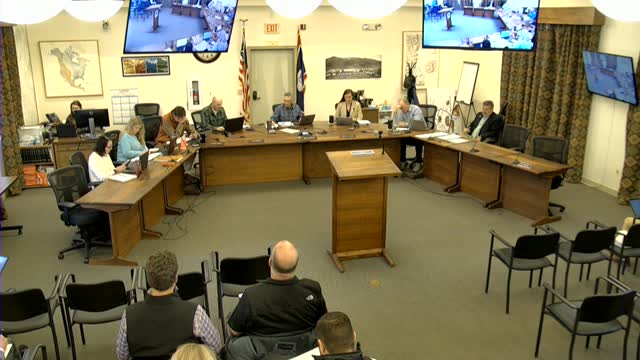Teton County seeks 60-day extension, staff to vet consultants after review of Grand Targhee draft environmental impact statement
Get AI-powered insights, summaries, and transcripts
Subscribe
Summary
After public comment raised concerns about the socioeconomic analysis in the Grand Targhee draft environmental impact statement, the Teton County Board of Commissioners agreed to request a 60-day extension of the DEIS comment period and asked staff to compile potential consultants to help critique the document.
The Teton County Board of Commissioners on April 7 agreed to ask the Bridger-Teton National Forest for a 60-day extension of the comment period on the draft environmental impact statement (DEIS) for the proposed expansion at Grand Targhee Resort and directed staff to identify consultants who could review the DEIS' socioeconomic and National Environmental Policy Act (NEPA) analyses.
The action followed public comment from Gary Kaffinis, who identified himself as a Wilson, Wyo., resident, chair of the Keytown Backcountry Alliance and a professor emeritus of resource policy and management. Kaffinis told commissioners he had read the draft DEIS and found it “highly qualitative” and “limited in its quantitative analysis,” and he recommended that the county hire an expert on NEPA and socioeconomic analysis so the county could comment as a cooperating agency.
County commissioners debated next steps during a substantive discussion that ranged from whether to request a short extension to whether to retain outside expertise. Commissioner Probst said the county should seek an extension and consider hiring a firm to analyze revenues and the costs associated with expanded recreation — public-safety, emergency medical services, solid waste, fire, and road maintenance — to determine the county’s fair share of those costs. Commissioner Carlman and others noted the DEIS comprises the principal document plus 13 appendices and said the county’s review would require time and expertise.
Public-works project manager Chris Colligan told the board staff could prepare a letter requesting an extension and that he heard a request to ask for 60 days. Colligan said staff would also compile a list of potential consultants and cost estimates and report back to the commission within a week. Several commissioners urged first attempting a targeted, county-led critique of the DEIS using available internal resources and past studies before committing to an outside contract.
The board also discussed how other stakeholders — conservation organizations, outdoor recreation groups and neighboring counties — may already be reviewing parts of the DEIS, and commissioners encouraged coordination with those groups. Commissioners identified specific procedural and analytic questions they want addressed, including whether the DEIS correctly interprets the county’s property-tax revenue and whether it accounts for costs the county would incur if visitation or resort use increases.
Next steps: the board directed staff to (1) submit a request for a 60-day extension to the DEIS comment period; (2) compile a list of NEPA and socioeconomic consultants, including availability and cost estimates, and return with that information within a week; and (3) continue internal review and coordination with local and regional stakeholders prior to deciding whether to hire external consultants.
The public comment period for the DEIS was identified in the meeting as closing May 2; commissioners asked staff to request additional time so the county could prepare a substantive, evidence-based response.
